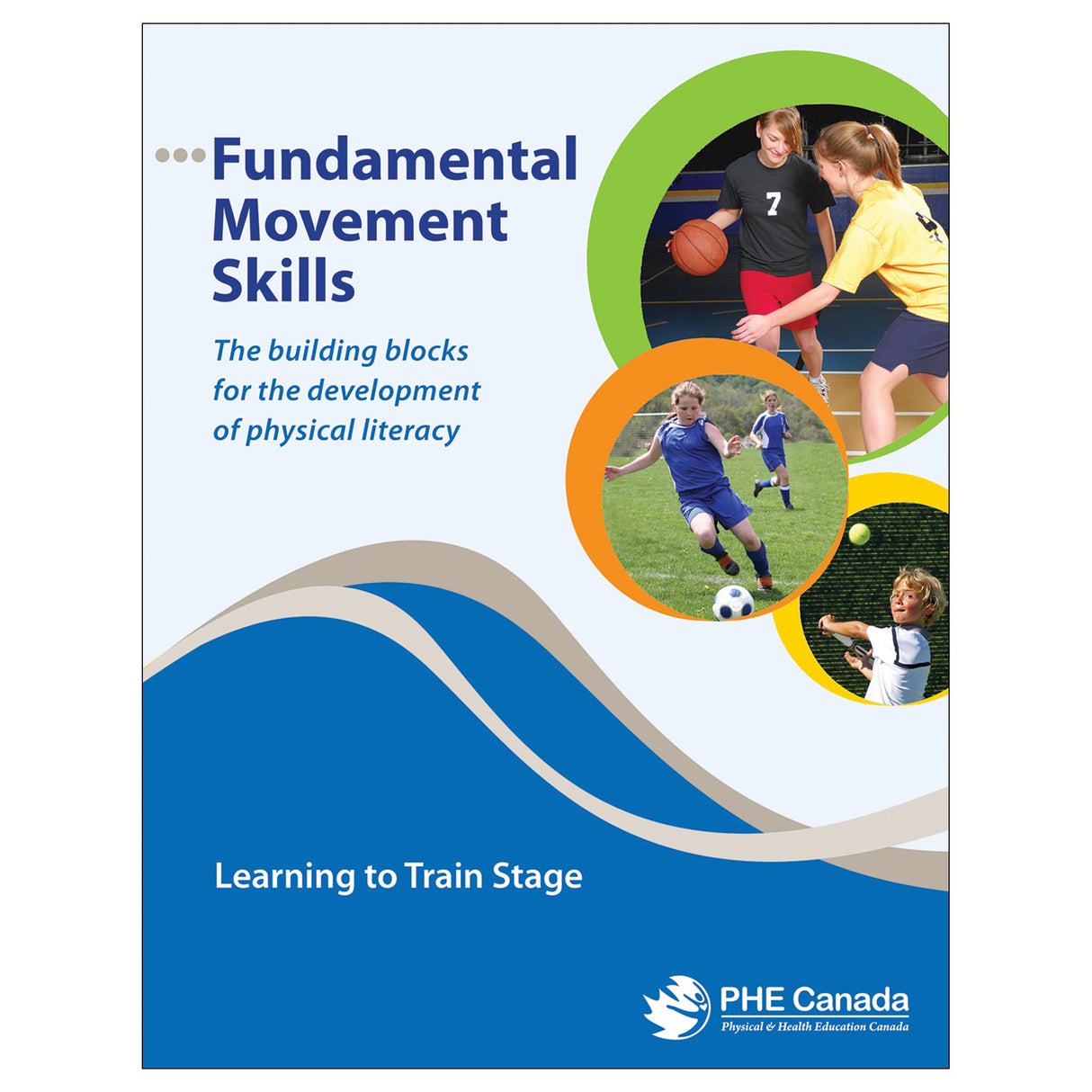Spiral bound
Fundamental Movement Skills: Learning to Train Stage
The building blocks for the development of physical literacy
Author: PHE Canada
$32.00 USD
Unit price
/
Unavailable
Spiral bound
$32.00 USD
$32.00 USD
Spiral bound
Fundamental Movement Skills: Learning to Train Stage builds on the learning from Fundamental Movement Skills: Active Start and FUNdamentals by emphasizing more advanced elaborations and combinations of movement skills and incorporating a broader understanding of fitness-related concepts and holistic developmental outcomes. This resource does the following:
- Emphasizes more advanced (specialized) elaborations and combinations of movement skills that can be transferred to a variety of sport, recreational, or active living activities such as dance, gymnastics, games, track and field, fitness, and outdoor or adventure activities
- Broadens its focus beyond skill development by integrating developmentally appropriate knowledge and understanding (e.g., skill cues, tactical decision making) with emotional (e.g. self-control), motivational (e.g., perceived competence), social (e.g., life skills like respect), and spiritual (e.g., meaning, joy) outcomes
- Transitions to sport-specific qualities, including fitness-related concepts such as speed, strength, stamina, coordination, balance, and agility
- Fosters comprehension and application of basic training and self-regulatory principles like warm-up, progression, and anxiety management
- Provides a description of the mature movement patterns of the fundamental motor skills, specific tips to help the teacher or coach develop these motor skills in their students or athletes, and a number of activities that utilize the skills
Audience
Teachers, coaches, and recreational leaders of children who are in the Learning to Train stage of the Long-Term Athlete Development (LTAD) Model. Introduction
Purpose and Design of This Resource
The Long-Term Athlete Development (LTAD) Model
Physical Literacy
Relationship of the Handbook to Curricula and the LTAD Model
A Developmental Approach to Motor Skill Development
Maturational Differences in Children and Youth
Readiness for Motor Skill Learning
Motor Skill Development
General Teaching Guidelines
Resource Components
Component A: Understanding, Feeling, and Relating
Component B: Specialized Movement Skills (Combinations and Elaborations)
Balance, Roll, Leap, and Land
Creative, Rhythmic, and Cultural Movements
Sprint, Hurdle, and Jump
Underhand Roll
Strike With the Hands, Arms, or an Implement
Field, Catch, and Pass
Cover, Dodge, Tackle, and Punt
Trap, Dribble, Shoot, and Rebound
Component C: Motor Abilities and Fitness
References and Appendixes
Physical Literacy During the Learning to Train Stage of LTAD
Recommended Reading
Characteristics of Children in the Learning to Train Stage
A Physical Literacy Checklist
A Conceptual Framework for Movement
Purpose and Design of This Resource
The Long-Term Athlete Development (LTAD) Model
Physical Literacy
Relationship of the Handbook to Curricula and the LTAD Model
A Developmental Approach to Motor Skill Development
Maturational Differences in Children and Youth
Readiness for Motor Skill Learning
Motor Skill Development
General Teaching Guidelines
Resource Components
Component A: Understanding, Feeling, and Relating
Component B: Specialized Movement Skills (Combinations and Elaborations)
Balance, Roll, Leap, and Land
Creative, Rhythmic, and Cultural Movements
Sprint, Hurdle, and Jump
Underhand Roll
Strike With the Hands, Arms, or an Implement
Field, Catch, and Pass
Cover, Dodge, Tackle, and Punt
Trap, Dribble, Shoot, and Rebound
Component C: Motor Abilities and Fitness
References and Appendixes
Physical Literacy During the Learning to Train Stage of LTAD
Recommended Reading
Characteristics of Children in the Learning to Train Stage
A Physical Literacy Checklist
A Conceptual Framework for Movement





